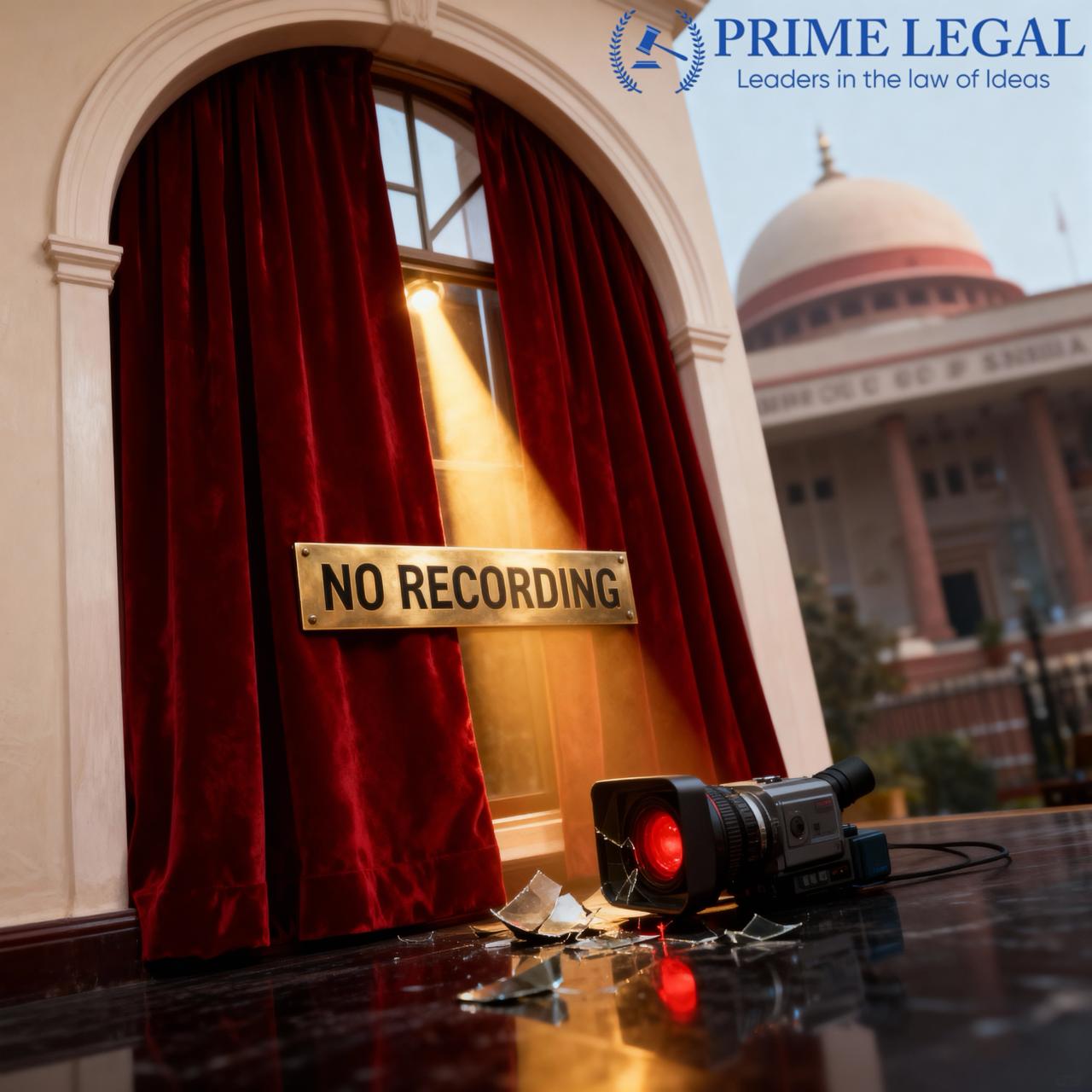Introduction
The Supreme Court recently dismissed a writ petition seeking the preservation of video recordings of court proceedings and making them accessible to lawyers and litigants as a matter of right. The concerned case is of Shri Mathews J Nedumpara & Ors. V. The Supreme Court of India & Ors., 2025.
Background
The Petitioner, Nedumpara, is known to be working on the right to access to justice and the mistreatment of lawyers by the judges. He had previously approached the then Chief Justice of the Bombay High Court and the Chief Justice of India in 2014, urging them to start video recording of court proceedings. After this, he filed a petition before the Bombay High Court seeking the same. However, this was dismissed because allowing video recordings would turn the court into a circus.
The hesitant behaviour of courts quickly changed during the COVID-19 period when physical proceedings became nearly impossible. The courts acknowledged the gravity of the situation and the necessity of an alternative; thus, virtual proceedings were adopted. After this, the court also allowed live-streaming of the proceedings in the larger public interest. The Petitioner was fuelled by these judgments and filed another petition seeking the storage of video recordings of court proceedings and making them accessible. His demand was rooted in various constitutional rights, structural, and cultural changes.
Key Points
Open Court: Right to access justice and right to know:
The petition can be viewed as part of a broader legal battle to uphold the rights to access justice and the right to know. In the case of Naresh Shridhar Mirjakar v. State of Maharashtra, the court upheld the right of journalists to provide a true and reliable report of court proceedings. (Naresh Shridhar Mirajkar and Ors. v. State of Maharashtra and Anr. 1966 SCR (3) 744). Post this, in a landmark judgement of Swapnil Tripathi v. Supreme Court of India, the court allowed live-streaming of court proceedings, especially for cases of constitutional importance or such cases that have a great impact on the public. This provided an opportunity for the public to observe court proceedings. (Swapnil Tripathi v. Supreme Court of India, (2018) 10 SCC 628). These cases realised the right to know for the citizens, rooted in Article 19 (1)(a) of the Constitution. This petition takes it a step further by demanding the preservation of video recordings.
Culture of mistreatment- The petition mainly relied on the unfortunate ill treatment of lawyers and litigants by judges to justify its demand. It highlighted instances of insensitivity shown towards young litigants. It highlighted a Bombay High Court incident where a young lawyer collapsed in court due to harsh treatment by the Bench. Young lawyers are often dealt with disrespect and neglect. It also alleged that Senior Advocates or juniors connected to influential lawyers receive more time and attention than junior lawyers from an ordinary background. These instances showcase a clear presence of power dynamics. The petition highlighted this as a public concern that needs to be addressed. For Nedumpara, storing video recordings will subject the Bench to accountability. It will also deter judges from misbehaving and provide a sense of security to young lawyers.
Restrictive stance by the court: The case was dismissed by a Bench consisting of Justice Rajesh Bindal and Justice Manmohan. Justice Manmohan, highlighting the Swapnil case, stated that access to justice has already been recognised and transparency provisions have been laid down. The Supreme Court’s committee has framed Model Rules for Live Streaming and Recording of Court Proceedings to guide courts. Stating that the matter has already been decided by a larger bench and guidelines have been put into place, the court dismissed the petition. The court also noted that the Petitioners should make a representation to the appropriate authorities, i.e., the court administration, as it involves institutional reform. Filing a writ petition is premature.
Recent developments
Currently, the Model Rules for Live Streaming and Recording of Court Proceedings allow recordings to be archived for at least six months. However, uploading on or access to copies of the recordings cannot take place without the sanction of the Court/designated officer. The petition was a call for mandatory live streaming of court proceedings, their storage, and access to lawyers and stakeholders involved.
Conclusion
The Supreme Court dismissed the petition, stating that the writ is premature and that the matter has already been decided by a larger bench in the Swapnil Tripathi case. The dismissal of this petition is evidence of a restrictive policy when it comes to recording proceedings.
“PRIME LEGAL is a full-service law firm that has won a National Award and has more than 20 years of experience in an array of sectors and practice areas. Prime legal falls into the category of best law firm, best lawyer, best family lawyer, best divorce lawyer, best divorce law firm, best criminal lawyer, best criminal law firm, best consumer lawyer, best civil lawyer.”
WRITTEN BY: Farzeen Zaman


